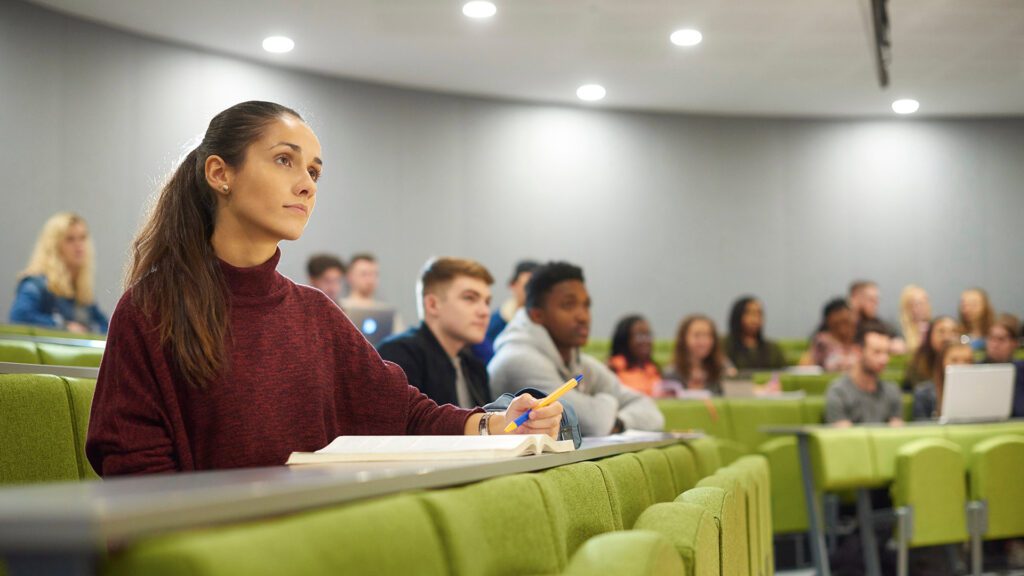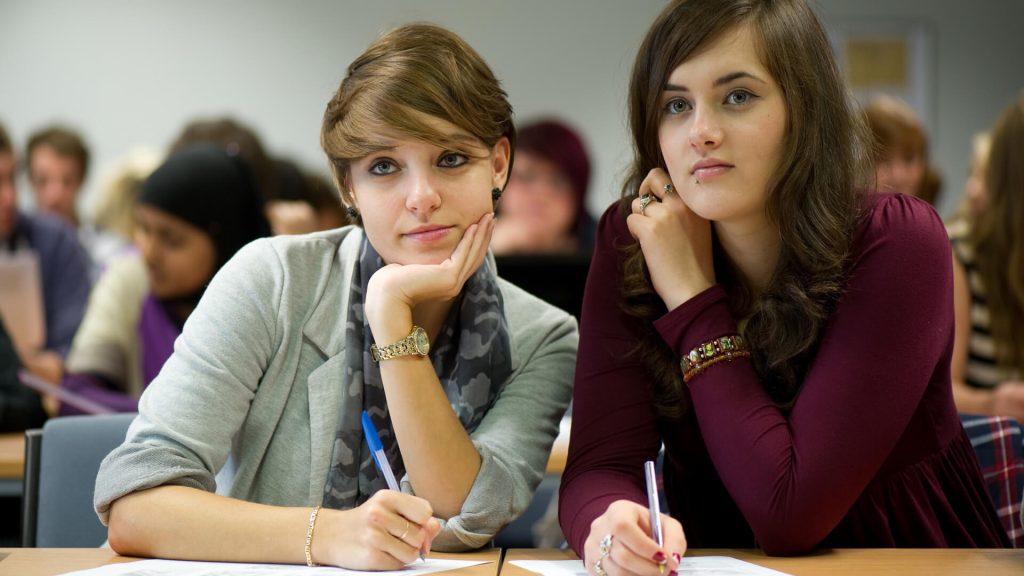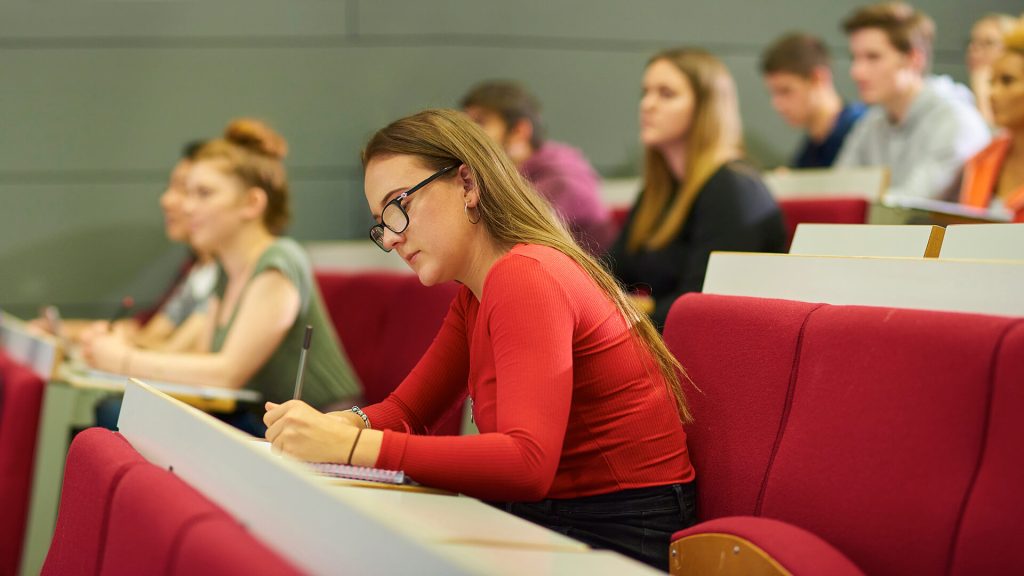Education and History BA (Hons)
UCAS code: X1V1
Discover how the past has influenced the way we live, govern societies and teach the next generation. In our education and history degree, you’ll explore modern history in a global context and discover how these two fascinating subjects are intrinsically linked.
Overview
| Course length: | 3 years full-time |
|---|---|
| Start dates: | September 2025 September 2026 |
| Location: | Edge Hill University |
| Example offers: | BCC-BBC (A Level) or DMM (BTEC) View full entry criteria |
| Subject(s): | Education and TeachingHistory |
| Faculty: | Education |
| Department: | Secondary and Further Education |
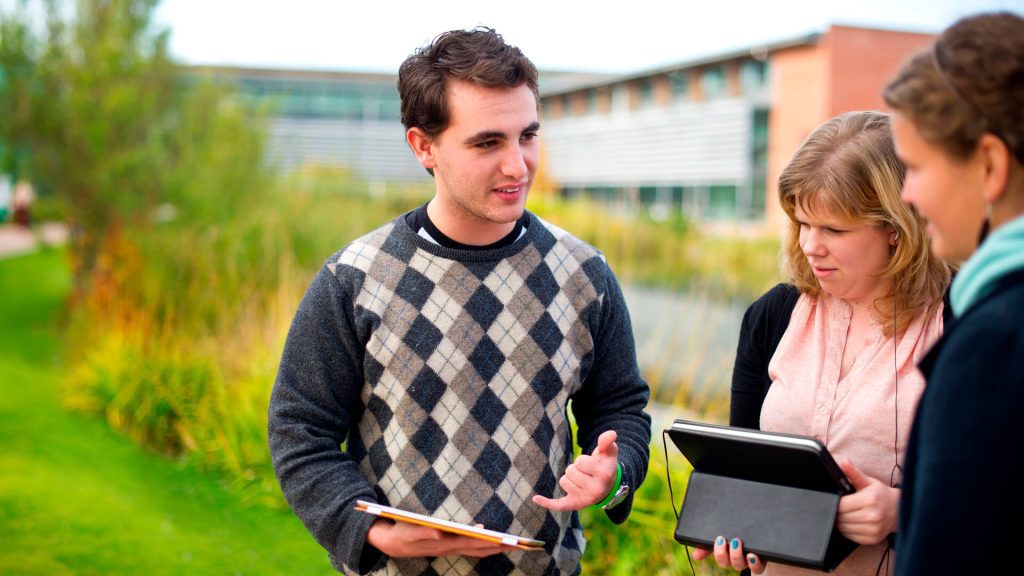
Philosophy, psychology and sociology all influence our understanding of how we teach. History plays a massive part too, making it the perfect subject to study alongside education.
Why are our schools and university systems the way they are? How have past governments shaped education? Debate and discuss these questions while exploring UK education system and how it compares with the rest of the world.
The future of education will be shaped by people like you. To create change, you’ll learn to think innovatively, inspire others and challenge the status quo.
Alongside looking at education, our specialists will help you explore broader areas of modern history. Explore African-American civil rights. Travel back in time to discover the origins of the Israel/Palestine conflict.
Creating connections between past and present will be key for your history studies. You’ll also combine your knowledge to explore fundamental questions about the relationship between education, society and different cultures.
Course features
-
International students can apply
-
Learn a language option available
-
Sandwich year option available
-
Studying abroad option available
-
Work placement opportunity
What you'll study
By applying key concepts to real-world scenarios, we’ll introduce you to the key areas of education studies – history, sociology, philosophy and psychology. You’ll choose to focus on either teaching with technology or making education accessible to all. For history, explore significant events from the sixteenth to twentieth century. Discover how Europe became the political and cultural entity we know today. Examine the age of empires, the movements for liberation, and the rise of globalisation.
In Year 2, you’ll develop your research skills, as well as picking between a placement or an extended study of an aspect of education. You’ll shape your studies with optional modules. Perhaps you’ll examine changes in the history of UK education or explore education from a psychological perspective. Choose from a range of historical themes such as the rise of America from the mid-19th century onwards and how historical events have been represented in cinema.
Continue studying the core disciplines of education, critiquing and applying the concepts and ideas of leaders in the study of education. You’ll look at education from sociological and psychological perspectives and decide whether you complete a dissertation. Specialise further with a range of history modules. Options include the black protest movements of the 20th century, the relationship British society has with its own history, and the evolution of the relationship between Britain and the USA.
How you'll study
The course is delivered through a combination of whole-group lecturers alongside small-group seminars and tutorials. The smaller sessions are designed to be interactive and give you the opportunity to work with the concepts, ideas and information presented in the lectures in order to gain a greater understanding of their relevance and potential applications.
In Year 2 you will have the opportunity to undertake a work placement and engage in work-based learning. Placements will be in a variety of different settings in which education takes place, either formally (schools) or informally (for example, art galleries and museums) and will be closely matched to your career aspirations.
How you'll be assessed
The assessment methods for this programme incorporate a variety of both traditional and innovative formats. There will be a blend of essays, exams and website development work. You will be asked to produce and present work through a combination of wikis and blogs, or to produce video presentations or give a live presentation. You will also create research posters reporting on the results of your investigations and be taught how to present your work in the format of professional magazine-style reports.
Who will be teaching you
You will be taught by a team of lecturers who bring with them a vast amount of both professional and academic experience. Members of the team include academics who research both the theoretical and practical aspects of teaching and learning in a host of contexts. Other members of the programme team offer a wealth of experience in teaching across all age-phases and a wide range of academic disciplines including history.
Where your course includes optional modules, these are to provide an element of choice within the course curriculum. The availability of optional modules may vary from year to year and will be subject to minimum student numbers being achieved. This means that the availability of specific optional modules cannot be guaranteed. Optional module selection may also be affected by timetabling requirements. Some restrictions on optional module choice or combinations of optional modules may apply.
Entry criteria
Typical offer 104-112 UCAS Tariff points.
Example offers
| Qualification | Requirement |
|---|---|
| A Level | BCC-BBC. |
| BTEC Extended Diploma (or combination of BTEC QCF qualifications) | Distinction, Merit, Merit (DMM). |
| T Level | Overall grade of Merit. |
| International Baccalaureate (IB) | We are happy to accept IB qualifications which achieve the required number of UCAS Tariff points. Subject-specific requirements at Higher Level (HL) Grade 5 may apply. |
| Access to Higher Education Diploma | 45 credits at Level 3, for example 9 credits at Distinction and 36 credits at Merit or 15 credits at Distinction and 30 credits at Merit. The required total can be attained from various credit combinations. |
Please note, the above examples may differ from actual offers made. A combination of A Level and BTEC awards may also be accepted.
If you have a minimum of two A Levels (or equivalent), there is no maximum number of qualifications that we will accept UCAS points from. This includes additional qualifications such as Extended Project Qualification (EPQ), AS Levels that haven't been continued to A Level, and General Studies AS or A Level awards.
English language requirements
International students require IELTS 6.0, with a score no lower than 5.5 in each individual component, or an equivalent English language qualification.
If your current level of English is half a band, one band, or one-and-a-half bands lower, either overall or in one or two elements, you may want to consider our Pre-Sessional English course.
Fair Entry Criteria
Our new Fair Entry Criteria is a Contextual Admissions Policy that takes an applicant’s personal and educational background into account. This policy will allow eligible applicants to receive up to a two-grade reduction in their entry requirements for this course. Find out more and see if you qualify.
How to apply
Apply full-time
Read our guide to applying through UCAS to find out more about the application process.
International
Please see our international student pages for further information about how to apply as a prospective international student.
Should you accept an offer of a place to study with us and formally enrol as a student, you will be subject to the provisions of the regulations, rules, codes, conditions and policies which apply to our students. These are available at www.edgehill.ac.uk/studentterms.
If you join a full time undergraduate degree at Edge Hill University, we will guarantee you the offer of a room in our halls of residence for the first year of your course.
Discover our accommodation
Facilities
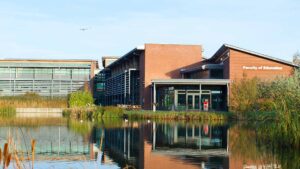
The Faculty of Education enjoys the enviable position of being one of the country’s leading providers of transformative education, training and research for the teaching and education workforce. Housed in a state-of-the-art £9m building, the Faculty of Education enjoys a stunning setting from both its lakeside and piazza buildings.
Facilities in the lakeside building include a 300-seat lecture theatre, five well-equipped ICT suites, and 18 teaching rooms complete with the latest technology.
Our nearby piazza building houses our Research Hub and our Secondary and Further Education department including a lecture theatre and a number of seminar rooms.
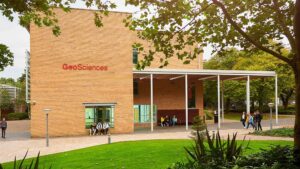 History modules are led by the Department of History, Geography and Social Sciences, based in the Geosciences building. The modern facilities combine with a friendly and supportive learning environment to ensure that your studies are a rich and rewarding experience.
History modules are led by the Department of History, Geography and Social Sciences, based in the Geosciences building. The modern facilities combine with a friendly and supportive learning environment to ensure that your studies are a rich and rewarding experience.
The Geosciences building features a large lecture theatre, small group teaching rooms, IT facilities, smaller tutorial spaces and a large social area.
Where you'll study
Finance
Tuition fees
UK Full-Time
£9,535
a year
International
£17,000
a year
EU/EEA and Swiss students who have settled or pre-settled status under the EU Settlement Scheme, as well as Irish nationals, may be eligible for the UK tuition fee rate.
Financial support
Subject to eligibility, UK students joining this course can apply for a Tuition Fee Loan from the Government to cover the full cost of tuition fees. UK students enrolling on the course may also be eligible to apply for additional funding to help with living costs.
Scholarships
We offer a range of scholarships, which celebrate the determination, commitment and achievement of our students. Many of our scholarships are awarded automatically. There are some however, where you will need to be involved in an application or nomination process. To find out more about our scholarships and check your eligibility, please visit our dedicated scholarships pages.
Money Matters
Please view the relevant Money Matters guide for comprehensive information about the financial support available to eligible UK students.
EU/EEA and Swiss students who have settled or pre-settled status under the EU Settlement Scheme may be eligible to apply for financial support. Irish nationals can ordinarily apply to Student Universal Support Ireland (SUSI). If you are an EU student who does not have settled or pre-settled status, or are an international student from a non-EU country, please see our international student finance pages.
Your future career
One next step for graduates with an education and history degree is teaching training. You might have decided you want to work with young children. Or perhaps you’re keen to pass on your expertise as a history teacher in a secondary school.
Beyond the classroom, you could kickstart your career teaching in different settings such as museums, galleries or even zoos. You could also design training for the corporate world.
Typical roles of our graduates secure with further training include:
- teaching at early years foundation stage, primary, secondary or further education through postgraduate teacher training
- learning mentor
- education administrator
- educational psychologist
- education counsellor
- mental health practitioner
- social/community worker
- prison educator
- international development worker
- training organiser
Other students decide to continue their study with a taught or research Master’s in a related area.
Personal tutor sessions will focus on reviewing your progress towards graduate level employment, with leadership skills built into every module so that you feel confident leading teams, working in groups and managing projects. Dedicated employability sessions in each year of study will guide you in writing a CV, producing a professional LinkedIn profile, and compiling an electronic portfolio that evidences your graduate skills.
Course changes
Every effort has been made to ensure the accuracy of this information, however our courses are subject to ongoing review and development. Changing circumstances may necessitate alteration to, or the cancellation of, courses.
Changes may be necessary to comply with the requirements of professional bodies, revisions to subject benchmarks statements, to keep courses updated and contemporary, or as a result of student feedback. We reserve the right to make variations if we consider such action to be necessary or in the best interests of students.
